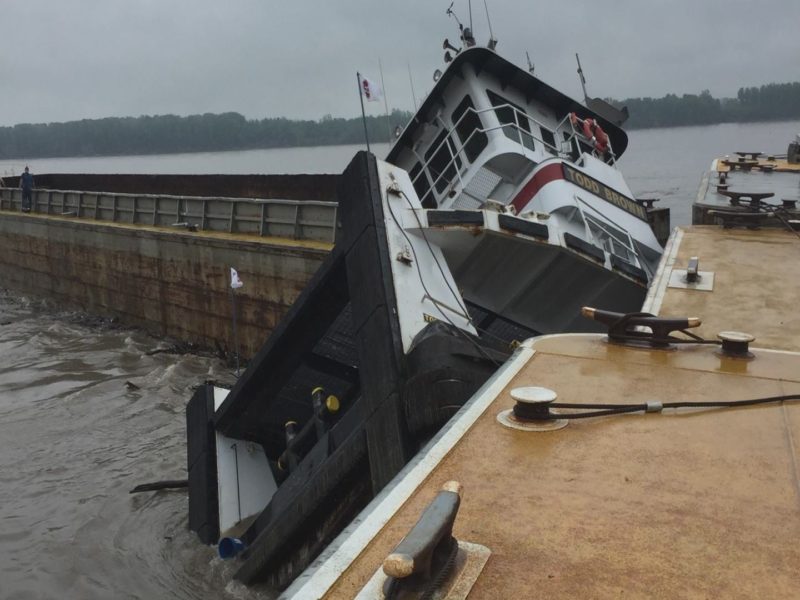2020 will be chock-full of challenges for the inland barge industry both on the water and in the halls of Congress.
2019 was a difficult year for many operators who saw business slump due to an ongoing trade war that affected grain shipments, and persistent flooding and high water. This year, barge operators are again facing high water conditions much earlier than usual, posing operational challenges on many parts of the inland system. Add in the potential negative affect on business of the coronavirus and 2020 could be another difficult year.
And later this year, barge operators along the Illinois Waterway will contend with the planned closure of this important navigable link between Lake Michigan and the Mississippi River for essential maintenance, which will disrupt traffic for up to 120 days.
Instead of spreading out the closures over several years, the Army Corps of Engineers will do all the maintenance work simultaneously this year at six sites, with closures planned for July 1 through October — river levels permitting — to avoid the spring flooding and fall harvest seasons.
The industry will also continue to work through compliance schedules under the Subchapter M inspection program. Operators are pressing the Coast Guard to correct what they view as problems with enforcement of regulations, with special focus on “operators lurking below the radar,” as Jennifer Carpenter, president and CEO of the American Waterways Operators, put it, and consistency of implementation from one Coast Guard zone to another.
On the policy front, waterways advocates are pushing for strong spending for inland infrastructure modernization and maintenance, and rejection of deep cuts proposed by President Trump that would essentially zero out funding for priority projects along the inland system. As in the past, the proposal would also impose user fees on commercial users of the waterways.
“No president has ever proposed zero infrastructure investment,” said Mike Toohey, president and CEO of the Waterways Council Inc., an industry-supported waterways advocacy group, adding that this was an “astonishing” move. Toohey retired from WCI on Feb. 18. The industry also seeks approval of a new funding formula for the Inland Waterways Trust Fund.




